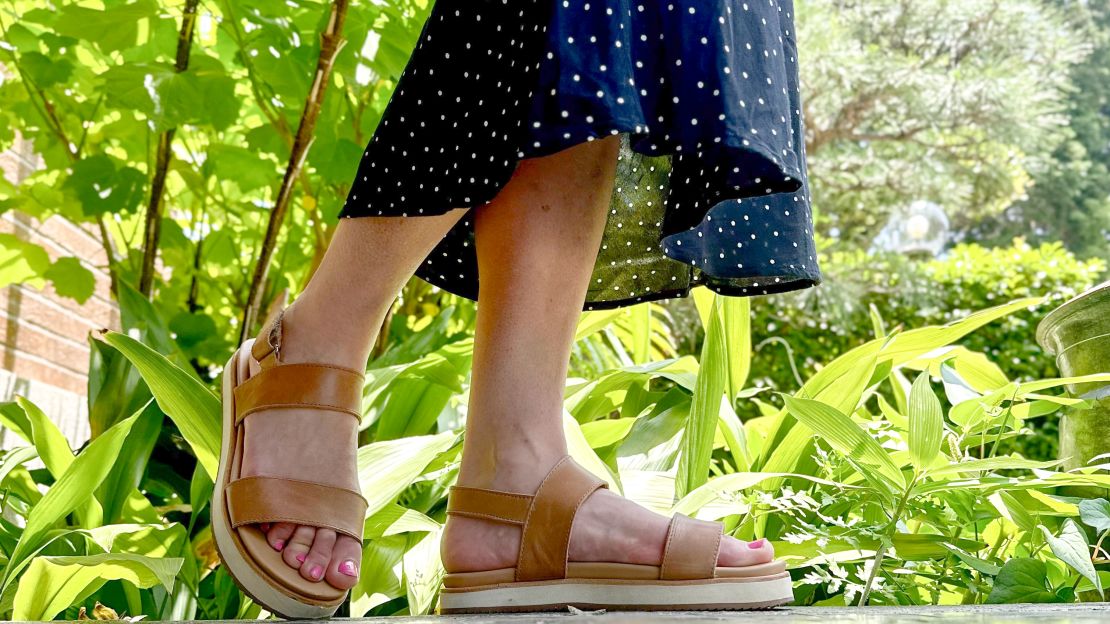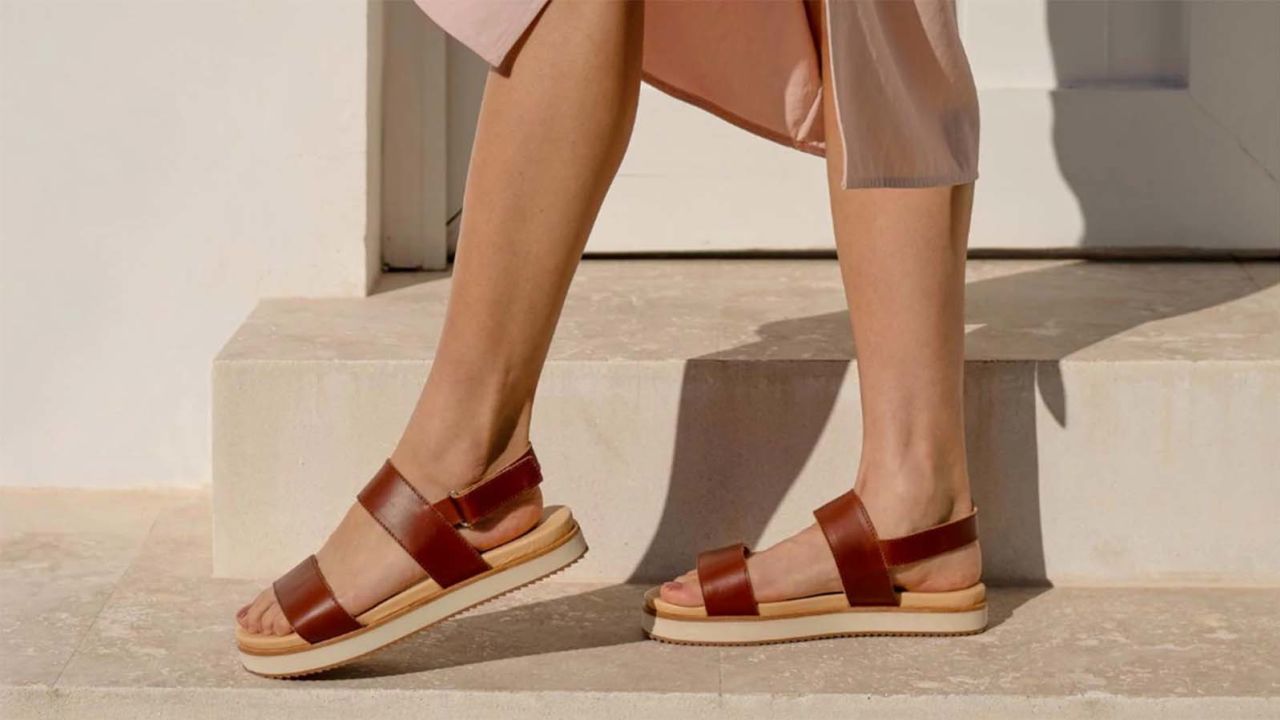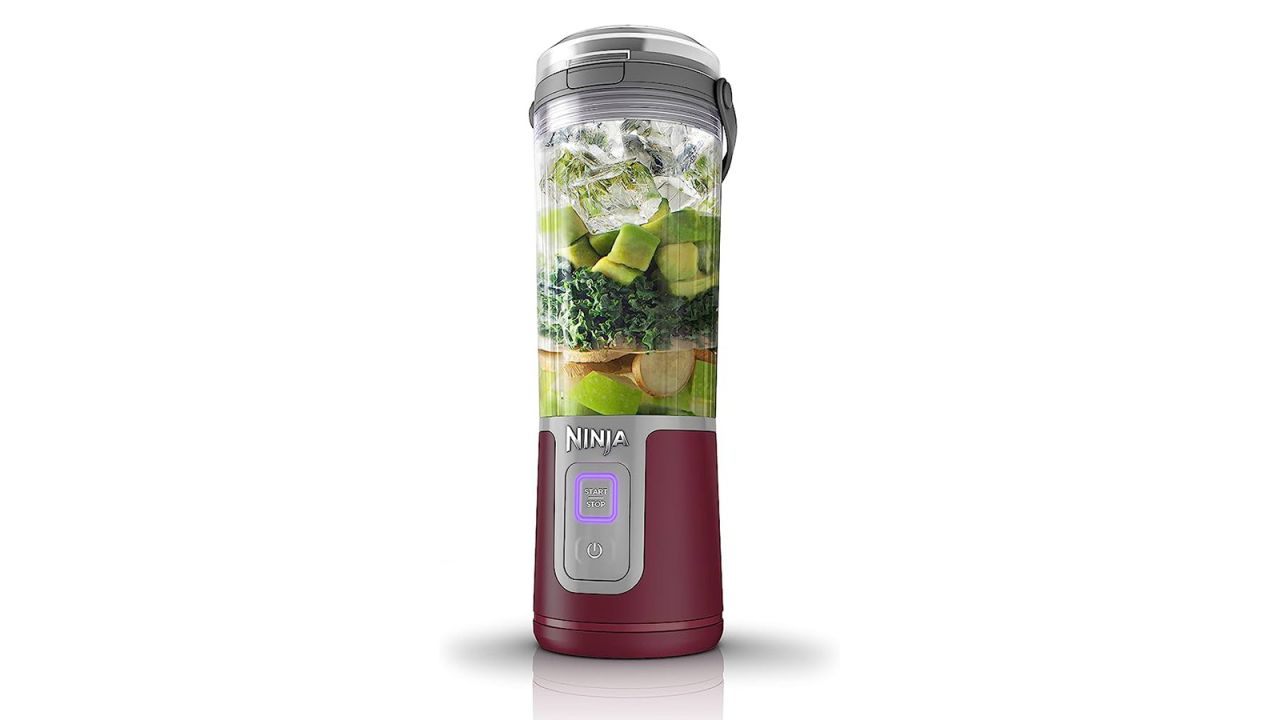This article is a part of?CNN Underscored’s Earth Week, a weeklong focus on our planet and ways to celebrate and preserve it. We’ll be featuring tips on how to live more sustainably, products to help you spend more time in nature and exclusive deals all week, so check in every morning to see what’s new and subscribe to the?CNN Underscored newsletter?to see it all.
If you’ve searched for the best sustainable shoes in the past couple of years, chances are you’ve come across Nisolo. The brand, founded in 2011 by Patrick Woodyard and Zoe Cleary, has long been a favorite among sustainability clothing advocates, with its “Sustainability Facts Label” an especially popular indication of Nisolo’s commitment to social and environmental responsibility. The label resembles a food nutrition label and comes with every product, informing consumers of their purchase’s score in 10 different “people” and “planet” categories —?and that’s only one facet of Nisolo’s robust commitment to sustainable living.
The fast-growing brand — which opened its fourth brick-and-mortar store in 2023 and now also sells accessories like bags, belts and wallets —?has also developed a reputation for well-designed, timeless shoes for women and men that can compete with any established shoemaker out there.
It’s not often you discover a brand that checks the boxes for sustainability, ethics, design and comfort,?so I knew I had to try Nisolo out myself to find out if its shoes are really as great as they seem.
The Flatform Sandals have enough support and traction to be solid walking sandals but with a minimalist style that makes them suitable for nearly every scenario. The Flatforms aren’t rugged shoes — I wouldn’t make them my travel go-to if my itinerary involved casual hikes or mostly beach and pool days — but the leather uppers are water-resistant. I wouldn’t recommend donning them in a downpour, but you don’t have to panic if you unexpectedly get caught in a bit of rain.
Nisolo’s sustainability and ethics
Social and environmental responsibility have been part of Nisolo’s fabric since day one, when Woodyard and Cleary launched the company after being inspired by the shoemakers in Trujillo, Peru, who crafted beautiful, quality footwear but still struggled to earn a consistent living wage. Today, Nisolo’s extensive sustainability framework consists of five key standards: people, planet, transparency, accountability and collaboration.
In terms of people, Nisolo’s overarching goal is to pay every member of the supply chain a 100% living wage (based on MIT’s Living Wage Calculator) — something that is woefully rare in the fashion industry. All its Tier-1 factories have signed off on its Supplier Code of Conduct, committing to practices that ensure health and safety, workers’ rights, gender equality, health care and benefits, and racial justice.
It’s easy for brands to commit to lofty goals of carbon neutrality or even to assure customers they’re planting trees to offset their carbon footprints. But Nisolo goes so much further than that. In addition to offsetting 100% of its carbon emissions, the company uses emissions measurements to inform efforts toward shrinking its footprint moving forward. After all, offsetting emissions is good, but producing less of them to begin with is exponentially better.
To that end, Nisolo avoids all oil-based materials and synthetics in its primary raw materials and only uses fossil fuel-based materials (including plastic) if they’re 100% recycled and recyclable at end of life. Plus, the company is always looking at how to upcycle and innovate. Nisolo powers its Peru factory via solar panels (and is working to help at least one other factory in its supply chain do the same), relies heavily on ocean and ground shipping rather than air, uses largely recycled and recyclable packaging and is working on cutting materials down to a single box.
While Nislo’s shoe line is primarily leather, 95% of the leather it uses is Leather Working Group certified, (per the website, that number will reach 100% in the next two years “at most”), meeting stringent standards for water and energy use, traceability, waste management and more. The company is also committed to meeting Wild Welfare’s Five Freedoms of Animal Welfare within its supply chain.
In addition to upcycling materials when possible, Nisolo offers a Shoe Reclamation Program through the nonprofit Soles4Souls and says 100% of the 7,000-plus pairs of shoes it’s collected so far have been donated to the organization to then go to communities and people in need.
What is Nisolo’s sustainability facts label?

When Nisolo developed its Sustainability Facts Labels, Woodyard was aware it might appear as a greenwashing tactic, he told Sourcing Journal at the time. But a closer look makes it clear that this tag is far more than a cutesy marketing ploy to trick people into buying sustainable-only-in-name products. The label itself is the tip of Nisolo’s massive transparency iceberg, providing customers with an easily digestible tool for understanding the journey their shoes (or accessories) took before making it into their hands, as well as who — and what — was impacted along the way.
The assessment methodology, which was developed over hundreds of hours, aggregates insights and data from dozens of third-party organizations, like the Sustainable Apparel Coalition’s Higg Index, Fair Labor Association’s Workplace Code of Conduct and Compliance Benchmarks, Oeko-Tex’s Standard 100, Re/Make’s Fashion Accountability Report and bluesign’s CRITERIA for production sites. The result is a grading scale that provides a percentage score for each of the five “people” categories (wages and payment, health and safety, worker’s rights and governance, gender equality and empowerment, and healthcare and benefits) and five “planet” categories (carbon footprint, raw materials integrity and durability, processing and manufacturing, packaging and distribution, and post-use product lifecycle).
That alone is far more transparency than most brands provide, but Nisolo doesn’t stop there. You could spend hours on the brand’s website, combing through the treasure trove of information — from wages and working conditions at its various factories, to carbon emissions and conservation data, its brand partner code of conduct and more. Nisolo has even publicly invited other brands to participate in its “Lowest Wage Challenge” (created in partnership with the brand ABLE) and publish the lowest wage paid to anyone in the supply chain.
Separately from its own self-assessed scores, Nisolo boasts third-party certifications such as Certified B Corp, Leather Working Group and Climate-Neutral Certified, and it has been recognized by sustainability organizations like Re/Make (all part of the “accountability” piece of its sustainability framework).
Are Nisolo shoes comfortable?

What makes Nisolo especially amazing is that it makes exceptionally good-looking, timeless sustainable shoes, and they’re actually comfortable. As a frequent traveler (and devoted one-bagger), I place a high value on shoes that can comfortably suit multiple scenarios — long city walks, dressy dinners out and casual excursions — while also being able to withstand at least a moderate amount of rain and being made sustainably and ethically. A tall order, I know. But Nisolo clearly understood the assignment.
The first pair I tested was a previous version of Nisolo’s popular Go-To Flatform Sandals (they have since been updated for a better, more standardized fit, according to the brand), a perfect mix between classic and on-trend style with its neutral colors (mine are Almond), the minimalist straps and the slight platform soles. They work with jeans as well as they do with dresses, and sometimes I can even pull them off with athleisure (well, for the most part), making them a pretty ideal sandal for travel and everyday wear. I made the risky choice to bring my still-quite-new Flatforms on a two-week Japan vacation?as one of only two pairs of shoes (the other was a pair of waterproof sneakers), and they held up incredibly well through several days of tromping around cities.
The sole provided enough cushioning so that the bottoms of my feet didn’t ache, even after sometimes upwards of six hours on the go, and the straps stayed in place without rubbing and creating blisters on any part of my foot. The Velcro fastening was a godsend, especially in Japan where you’re often expected to remove your shoes when going inside certain businesses, hotels and homes. They had as close to the ease of slip-ons but with the security of heel straps as you could get. Plus, given my extremely narrow feet, I love being able to adjust and tighten them as needed.
Only near the end of my two weeks in Japan did I start to experience some discomfort after a long day in the sandals, but I could switch shoes for a day and still be able to return to my Flatforms without residual pain or issues. Ultimately, the only sandals I have that are more comfortable for that amount of walking are my Teva Hurricane XLT2 sandals; still, I’m honestly impressed that a far less rugged and utilitarian style gets so close to those.
These woven leather shoes have just enough coverage to make the style ideal almost year-round (don’t wear them in the snow or frigid temperatures please), with the versatility to be dressed up or down. Nisolo recommends sizing a half size down, and you’ll likely have to spend time wearing them indoors (with socks and maybe moleskin padding) to break them in. (Pro tip: A brand representative told me per half size up, you gain approximately 0.25 inches in length and a bit more width.) Once you break your Huaraches in, they should be plenty comfortable for most outings (although they’re not heavy-duty walking shoes).?
I also tested Nisolo’s bestselling Huarache Sandals, a pair of closed-toe, slip-on flats. The handwoven style —?a traditional Mexican shoe —?is simultaneously casual and elegant, and perfect for shoulder-season weather. Unlike the Flatform sandals, these ones required a break-in period. When I first slipped my feet into the Huaraches, they felt pretty perfect, so I took them for a spin the next time I left home —?a half-mile or so walk to get ice cream. Unfortunately, only a few minutes into that walk, the back of the shoe started rubbing into my heels in a really painful manner, to the point where I wasn’t sure I’d be able to make it home in them. I went back, did some research and dutifully followed Nisolo’s guidelines for breaking in shoes —?wearing them around the house with socks and bandages (the website suggests moleskin padding, but I opted to use what I had on hand instead) —?until they felt better. It took some time, but I can now comfortably wear my Huaraches out without issues.
I still wouldn’t count on my Huaraches as my sole travel shoes or for a long day on my feet, but the style never struck me as one for heavy-duty walking to begin with. That said, Nisolo sells a pretty wide variety of styles for men and women, including boots, heels, loafers and sneakers, so you have plenty of options if you’re looking to add a new pair of sustainable shoes to your wardrobe.
More Nisolo shoes and products
The name doesn’t lie: These boots — in any of the four available colors — are a perfect everyday style. If you don’t already have a pair of classic Chelsea boots in your closet, consider this your sign to get one.
The men’s version of the bestselling style comes up a bit further on the foot than the women’s and is available in some darker leathers, but the look is just as versatile and effortless.
If you love a good pair of heels but aren’t keen on having to swap them out for sneakers halfway through the day (or night), try these. The overall look is sleek and classy, but the two-inch block heels and memory foam insoles are built for comfort and stability.
Yes, Nisolo also makes (leather) sneakers. This design is a chic everyday sneaker, with a monochromatic look (or mostly monochromatic, in the case of the White option) with subtle sporty touches. The water-resistant uppers and cushioned insoles with arch support makes them a fantastic candidate for your go-to travel shoes.
If you want the classic Chelsea boot vibes but with a little lift, it doesn’t get much better than these. The 2.5-inch heels are supported with five-layer memory foam insoles and rubber heel cups that help you maintain traction. They also feature low-profile lug soles, perfect if you’re into the lug sole trend but aren’t sure you’ll love it forever. (Nisolo does make full lug sole Chelsea boots too.)??
Nisolo’s trademark sustainable and ethical leather craftsmanship expands beyond shoes, and if you’re committed to buying less stuff more thoughtfully, this convertible bag is a great find. You can wear it five different ways: as a clutch, a belt bag, a crossbody, a half-cross and an over-the-shoulder purse, or you can tuck the strap inside and use it as an oversized wallet in a larger tote.
You really can’t go wrong with a good pair of chukka boots, wearing them for work, travel, dinners out and casual days about town. Nisolo’s version offers a streamlined look, plus five-layer memory foam antimicrobial insoles, water-resistant uppers and rubber sole savers and heel cups.
The Diego Everyday Sneakers are more elevated shoes than the Court Sneakers, but they definitely still qualify as everyday footwear. They just have sleeker uppers and waxed cotton laces that you can dress up that much more.
The look of this card case is about as simple and classic as it gets. While you may be able to find similar-looking wallets elsewhere, you can buy this one from Nisolo knowing it hass quality craftsmanship, the materials were ethically sourced (it’s Leather Working Group certified) and the people who made it earn a living wage.



























